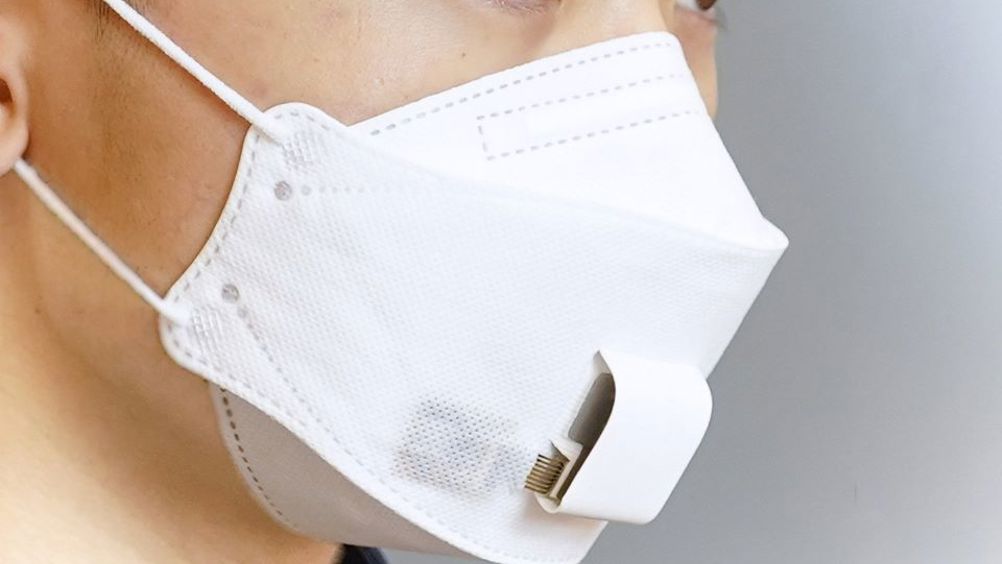‘Smart mask’ analyses breath for signs of medical conditions
Researchers at Caltech have developed a prototype ‘smart mask’ that monitors a range of medical conditions, including respiratory ailments.

In contrast to other smart masks being developed that monitor physical changes like the temperature, humidity, or rate of breath, the EBCare smart mask can analyse the chemicals in a person’s breath in real time. In use, the mask could monitor asthma patients for levels of nitrite, a chemical that indicates airway inflammation. The mask is detailed in Science.
Lead researcher, Wei Gao, professor of medical engineering at Caltech, said: "Monitoring a patient's breath is something that is routinely done, for example, to assess asthma and other respiratory conditions. However, this has required the patient to visit a clinic for sample collection, followed by a waiting period for lab results.
"Since COVID-19, people are wearing masks more. We can leverage this increased mask use for remote personalised monitoring to get real-time feedback about our own health in our home or office. For instance, we could use this information to assess how well a medical treatment may be working."
Register now to continue reading
Thanks for visiting The Engineer. You’ve now reached your monthly limit of news stories. Register for free to unlock unlimited access to all of our news coverage, as well as premium content including opinion, in-depth features and special reports.
Benefits of registering
-
In-depth insights and coverage of key emerging trends
-
Unrestricted access to special reports throughout the year
-
Daily technology news delivered straight to your inbox










National Gas receives funding to develop Gravitricity underground hydrogen storage system
One single rock salt mine - Winsford - has 23 <i>MILLION </i>cubic metres of void and even allowing for 10% of that void set aside for hazardous waste...